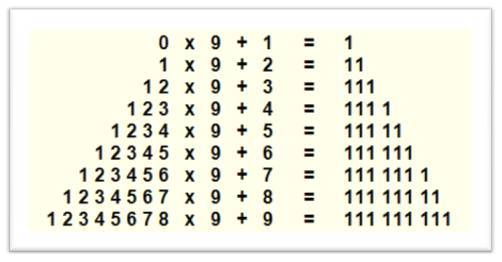Repunit Squares
 How many repunits are perfect squares?
How many repunits are perfect squares?
Details and assumptions
A repunit is a string of 1's, like 1 , 1 1 , 1 1 1 . . .
The answer is 1.
This section requires Javascript.
You are seeing this because something didn't load right. We suggest you, (a) try
refreshing the page, (b) enabling javascript if it is disabled on your browser and,
finally, (c)
loading the
non-javascript version of this page
. We're sorry about the hassle.
3 solutions
plz...can u solve it in more detailed way....
Log in to reply
A square is only of the form 4 k or 4 k + 1 .
For repunits greater than 1, it will be of the form n 1s 1 1 … 1 1 where n ≥ 2 .
We can write it as 1 0 0 m + 1 1 . Which is equal to 1 0 0 m + 8 + 3 = 4 ( 2 5 m + 2 ) + 3 = 4 k + 3 . But squares cannot be written in the form 4 k + 3 . Therefore repunits greater than 1 can't be squares. Since 1 is a square, the number of repunits which are squares are 1
To prove that R n can't be perfect squares except n = 1 .
Given that x 2 = R n = k = 0 ∑ n 1 0 k .
We can say that x 2 = 1 + 1 0 ( R n − 1 ) ≡ 1 ( m o d 1 0 ) for n > 1 .
So we get x ≡ ± 1 ( m o d 1 0 ) . (Since x must have a unit of 1 or 9.)
Therefore, x can be written as 1 0 m ± 1 for some m .
x = 1 0 m ± 1 .
x 2 = ( 1 0 m ± 1 ) 2 = 1 + 1 0 + 1 0 0 + . . . 1 0 n
1 0 0 m 2 ± 2 0 m + 1 = 1 + 1 0 + 1 0 0 + . . . + 1 0 n
1 0 m 2 ± 2 m = 1 + 1 0 + 1 0 0 + . . . + 1 0 n − 1 (cancel 1 and divide by 10)
2 ( 5 m 2 ± m ) = 1 + 2 ( 5 + 5 0 + . . . + 5 × 1 0 n − 2 )
Since LHS is even but RHS is odd, contradiction!
Therefore, there exists only 1 number. (which is 1)
I did not understand well, please explain me in more deep way.
same method
Note that only numbers which are ≡ 1 ( m o d 4 ) or ≡ 0 ( m o d 4 ) can be perfect squares.
Now, for repunits which are greater than 1, 1 1 … 1 1 ≡ 1 1 … 0 0 + 1 1 ≡ 1 1 ≡ 3 ( m o d 4 ) . Therefore no repunit greater than 1 is a perfect square. Since 1 is a square, The number of repunits which are perfect squares are 1